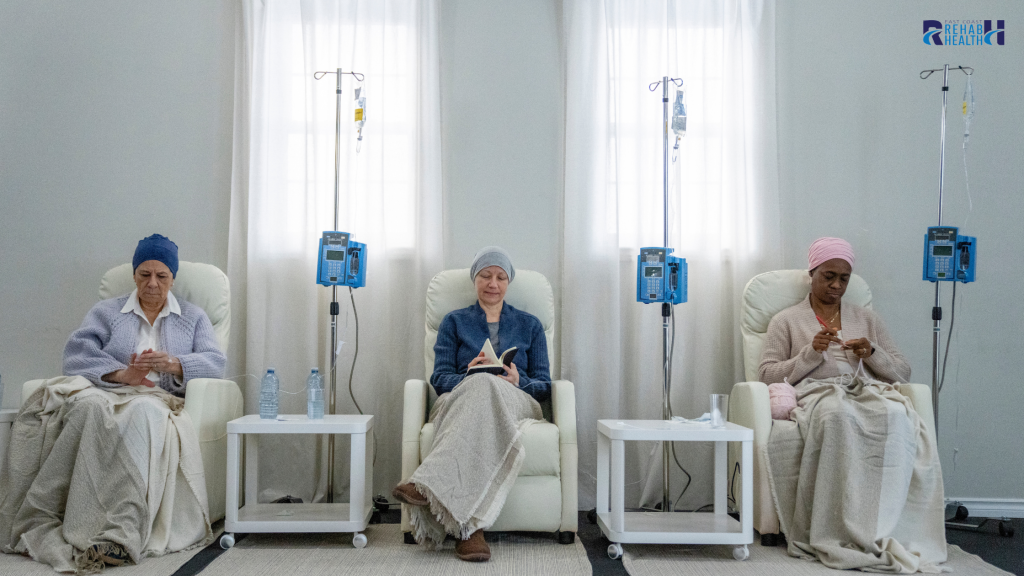Cancer affects millions of people worldwide, presenting a significant health challenge. Recovery and management often require a multifaceted approach, including treatments like surgery, chemotherapy, and radiation. However, an emerging and vital component of cancer care is exercise physiology, which supports patients physically and emotionally. This blog explores what cancer is and how exercise physiology can aid in the recovery process.
What is Cancer?

Cancer is a disease characterized by the uncontrolled growth and spread of abnormal cells in the body. It can start almost anywhere in the human body, which is made up of trillions of cells. Normally, human cells grow and divide to form new cells as the body needs them. When cells grow old or become damaged, they die, and new cells take their place. However, in cancer, this orderly process breaks down. As cells become more abnormal, old or damaged cells survive when they should die, and new cells form when they are not needed. These can proliferate, forming tumors.
Types of Cancer

Cancer is not just one disease but many diseases. There are over 100 different types of cancer, usually named for the organs or tissues where the cancers form. For example:
- Breast Cancer
- Lung Cancer
- Leukemia (Blood Cancer)
- Prostate Cancer
- Skin Cancer
Treatment Methods

Treatment varies depending on the type of cancer and how advanced it is. Some common treatments include:
- Surgery: Removing the tumor
- Chemotherapy: Using drugs to kill cancer cells
- Radiation Therapy: Using high-dose radiation to kill cancer cells
The Role of Exercise Physiology in Cancer Recovery

Exercise physiology involves the study of the body’s responses to physical activity and how exercise can promote healing and well-being. In the context of cancer care, exercise physiology is increasingly recognized for its benefits:
- Enhanced Physical Function: Exercise helps maintain muscle strength and joint function, reducing the physical decline that can occur during cancer treatment.
- Emotional Well-being: Regular physical activity can improve your mood and reduce symptoms of depression and anxiety.
- Energy Levels: Cancer treatments can lead to fatigue, but exercise has been shown to significantly boost energy levels.
- Immune Function: Moderate exercise can boost the immune system, helping the body fight cancer and other diseases.
Implementing Exercise Physiology Safely
It’s important to tailor exercise routines to each individual’s needs, particularly when dealing with cancer. Consulting with a qualified exercise physiologist who understands the nuances of cancer treatment and recovery is crucial. They can create a personalized exercise plan that takes into account:
- Type and stage of cancer
- Treatment side effects
- Overall health status
- Personal goals
When to Call for an Exercise Physiologist

Deciding when to involve an exercise physiologist in your cancer treatment plan can make a significant difference in your recovery and overall quality of life. Here are several indicators that suggest it might be time to seek their expertise:
- Post-Diagnosis: Soon after a cancer diagnosis, it’s beneficial to consult an exercise physiologist. They can work in conjunction with your medical team to design a safe, effective exercise program that complements your treatment plan.
- Experiencing High Fatigue Levels: If fatigue is affecting your daily life, an exercise physiologist can tailor a program to help manage and potentially reduce fatigue. Exercise has been shown to improve energy levels even during cancer treatment.
- Physical Function Decline: Noticeable declines in strength, flexibility, or endurance are clear signs to seek out exercise physiology services. Maintaining physical function is crucial for independence and quality of life.
If you or someone you know is battling cancer, consider integrating exercise physiology into the recovery plan. It’s a powerful tool that can support both physical and emotional healing. For professional guidance tailored to your specific needs, contact us today.
The journey through cancer treatment and recovery can be daunting, but adding exercise physiology into the mix offers a proactive way to enhance health and improve quality of life. Embrace the journey with strength, and let exercise physiology help you regain control.